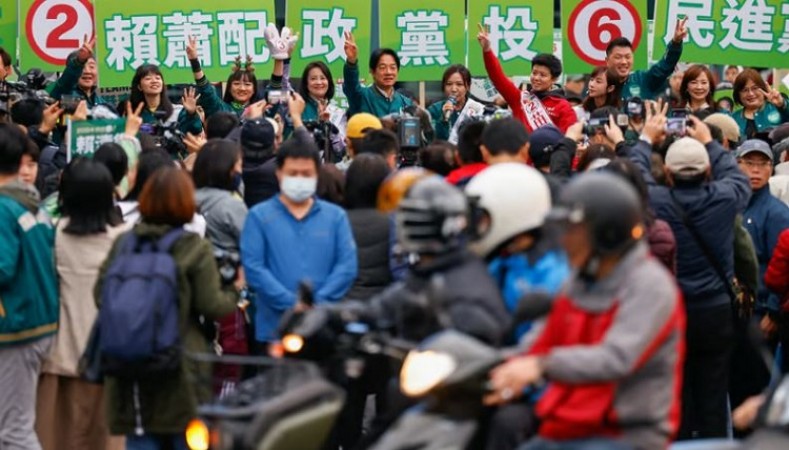
Following Taiwan's elections, anticipated military pressure from China on the island nation, which Beijing regards as its "sacred" territory, is likely to escalate, regardless of the election outcome.
Several key figures, including a former PLA general and a retired Taiwan military chief, have voiced concerns about a potential increase in military tension in the region. They anticipate China applying pressure on the newly elected president, framing the elections as a decisive choice between war and peace.
The January 13 presidential and parliamentary elections have been significantly framed by China as a critical juncture, warning against any attempts by Taiwan to pursue formal independence, deeming it a path to conflict.
China's focus has been particularly on Lai Ching-te, the Democratic Progressive Party's (DPP) presidential candidate, dismissing his proposals for dialogue due to its perception of him as a separatist.
Both major Taiwanese parties, the ruling DPP, and the opposition Kuomintang (KMT), assert their capability to maintain peace in the region. They also emphasize bolstering Taiwan's defenses and affirm that the island's destiny should be determined by its people.
While the KMT traditionally leans towards closer relations with China, it denies being pro-Beijing.
Wang Zaixi, a former deputy head of China's Taiwan Affairs Office and retired Chinese army major general, has cautioned that if Lai, whom he labeled an "extremist" independence supporter, were to win, a military clash across the Taiwan Strait couldn't be ruled out.
The potential repercussions of such a conflict could be far-reaching, impacting global geopolitics and economies, placing the two foremost military powers, China and the United States, in direct confrontation. Furthermore, crucial shipping routes might be disrupted, affecting semiconductor and commodity supply chains.
Admiral Lee Hsi-ming, a former Taiwan military chief, predicts a more aggressive stance from China to caution the new president about their policies toward China.
Western security officials are monitoring China's stance on the possible military response to the election outcome. Some officials speculate that China might adopt a wait-and-see approach, potentially reacting more forcefully after May 20, coinciding with the new president's inauguration.
Moreover, if the DPP secures the presidency but loses its parliamentary majority, it might dampen China's reaction, limiting the DPP's legislative power, according to a Western official.
Despite Taiwan's defense ministry dismissing China's military threat as election-driven, concerns loom over China's intentions and actions in the region, emphasizing that their assessment remains independent of election dynamics. China's defense ministry did not respond to requests for comment on these escalating tensions.
Chinese Weather Balloons Intrude Taiwan's Airspace Ahead of Presidential Elections
China Names Dong Jun as New Defense Minister Amidst Leadership Transition